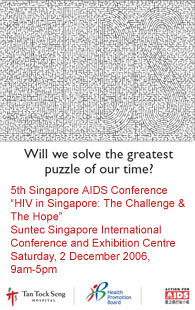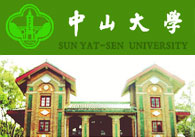New Zealand's Gay Men's Health launches new HIV campaign
New Zealand's Gay Men's Health will launch "Assume Nothing," a major new HIV/AIDS awareness campaign with a series of campaign ads to be rolled out over the next few months.
The "disclosure myth" will be the first to be shattered in a series of "Assume Nothing" campaign ads, with each taking on a different popular misconception about HIV risk. The advertisements will appear in gay media and venues nationwide, bus shelters in areas of Auckland with significant gay male populations, and online through dating websites.
Gay Men's Health (GMH) says too many gay and bisexual men are choosing to have unsafe sex because they assume their sexual partners will say if they have HIV. Douglas Jenkin, Team Co-ordinator of GMH, said: "Believing that someone with HIV can disclose or even knows they are positive is one of the most dangerous misconceptions gay and bisexual men in New Zealand now have. If you think you're safe from HIV because you only have anal sex with men you think are negative, sooner or later you could be in for a nasty surprise."
Results from the Gay men's Online Sex Survey (GOSS) conducted earlier this year found that 41% of men seeking other men for sex online in Auckland believed that a partner would tell them if they were HIV-positive before having sex. The survey was conducted by the New Zealand AIDS Foundation and the University of Otago.
2005 saw the highest number of gay and bisexual men diagnosed with HIV in the country in a single year, with 90 new infections recorded. The rates of infection among gay and bisexual men has been steadily increasing since 2001, with the vast majority of new cases contracted within New Zealand.
Related sites:
Menseekingmen.com: Safer sex info
5th Singapore AIDS Conference: December 2, 2006
To be held the day after World AIDS Day, the theme of the fifth Singapore AIDS Conference is "HIV in Singapore - The Challenge and The hope."

Organised by Action for AIDS, the one-day conference is designed for not just healthcare professionals but all stakeholders and workers in our collective efforts to address AIDS. Of the five symposiums, one will focus on men who have sex with men. Titled "Stigma and Discrimination," the MSM symposium will include the following:
- 2006 MSM KABP survey results by Dr Stuart Koe, Fridae
- AfA MSM Programme by Paul Toh, AfA
- Counseling and Support for MSMs in Singapore by Bryan Choong, Oogachaga
- AIDS Related Stigma/Discrimination by Ho Lai Ping, CDC/TTSH
- Overcoming Barriers to HIV Prevention for MSM by Alex Au, Yawning bread
For more information, visit www.afa.org.sg
For registration, contact James Foong at james.foong@afa.org.sg or call 91068884. 100 free registrations will be given to Fridae.com members on a first come first serve basis.
Highlights of Symposium 2: MSM / Stigma and Discrimination (11 am - 1 pm)
2006 MSM KABP (Knowledge, Attitude, Behaviour and Practices) Survey Results
by Dr Stuart Koe
Abstract:
Successful HIV prevention depends on changing risk behaviors, not simply knowledge of HIV and how it is transmitted. In April 2006, Action for AIDS Singapore, in collaboration with Fridae.com, conducted the third online behavioral sex survey of men who have sex with men (MSM) in Singapore. The survey aimed to gain an in-depth understanding of the attitudes and behavior of MSM, with the objective of using the results to design HIV prevention campaigns to be more effective in addressing MSM issues.
The study was based on a set of questions called the Behavioral Surveillance Survey (BSS) format developed by Family Health International (FHI) and IMPACT (Implementing AIDS Prevention and Care Project). Statistical analysis was provided by Dr George Bishop from the National University of Singapore.
Based on the findings of the study, there is a high level of unsafe sex occurring amongst MSM, and there are many gaps in the messages that are being disseminated to the community. Knowledge of HIV and testing rates are very high amongst the MSM surveyed, yet this has not led to safe sex behavior.
It is imperative to plug these gaps in understanding, and address the myths and misconceptions that MSM in Singapore may have regarding HIV and safe sex behaviour.
Overcoming Barriers to HIV Prevention for MSM
by Alex Au, Yawning bread
Abstract: One of the commonly-used terms when discussing obstacles to public intervention against HIV among MSM is "stigma". By this is suggested an association in the public mind between the disease and homosexual men, and a generally prejudiced view towards non-normative sexual behaviour. These starting conditions serve to justify many responses to HIV/AIDS, including a reluctance by the authorities to high-profile campaigns directed at MSMs for fear of being accused of "promoting" homosexuality, a resistance among MSMs towards the safer-sex message if they see messages targeted at them as proxies for the state and society's targeting of them generally, and a sense of immunity from risk among heterosexuals.
Mindsets receptive to stigma are characterised by fondness for sweeping generalisations and simplistic associations.
Through the websites Yawning Bread, Mr Wang Bakes Good Karma and Singabloodypore, an Internet poll was conducted from mid-October to mid-November 2006. Reaching primarily internet surfers who tended to be socially and politically aware, the respondents would certainly not be representative of Singaporeans. However, to a degree, this audience would be opinion leaders on social and political issues.
The survey set out NOT to measure detailed knowledge about risk and prevention, but to assess to what degree misinformation and sweeping generalisations resonate even with this slice of Singaporeans.
By splitting the results into three groups: heterosexual men, heterosexual women and homosexual men, we may gain some insight to differences in attitudes among them. Is there a gulf, how wide is it, in how they perceive the threat of HIV/AIDS? To what extent does attachment to "myths" stand as barriers to education and prevention?
China university approves first LGBT campus group in the country
In what is said to be a highly unusual move, a gay group has been officially registered at a university campus in southern China for the first time, a Hong Kong-based activist has said.

The Sun Yat Sen University in Zhuhai, a city in Guangdong province, has allowed a gay and lesbian group of students to be formally registered. It is believed to be the first university in China to allow such a group. The organisation, called Happy Together, will organise lectures and movies on gay culture on campus and provide HIV education.
According to a BBC correspondent in Hong Kong, it is highly unusual for official recognition to be granted to such a group. Although many informal groups of gay and lesbian Chinese exist, many avoid official censure by using the Internet.
Hong Kong activist Chung To, who has visited the new group at Zhuhai, says its application focused not on the sexuality of members but on their wish to study gender issues.
"They are a group of students who would like to study and learn more about gay and lesbian issues," said To, who is director of foundation that runs projects for children affected by AIDS in China.
"I think the main significance of the group is that it is the first time the university has officially approved the existence of such a group.
"In the past there have been informal gay and lesbian centred groups at universities. But this is the first time that a university has actually officially given approval of such a group," he said.
Comprising 23 schools and colleges, including a medical school and a law school, Sun Yat Sen University which is also known as Zhongshan University (中山大学) is said to be one of the most liberal in the country. The authorities approval for the club is regarded as the most pro-gay measure since Fudan University in Shanghai introduced an optional course in homosexual studies for non-medical undergraduates last year.
New hotline for lesbians
In related news, a free hotline for lesbians will be launched in China for the first time. It will be managed by Chiheng Foundation which has been providing the service to gay men. It hopes to provide answers to legal, psychological and medical questions lesbians may have. The hotline will be available between 2 pm to 4 pm every Saturday at 800-988-929, or 021-6380-4448 from mobile phones after its launch.
Related sites:
Sun Yat Sen University
Chiheng Foundation
Israeli high court recognises same-sex marriages held abroad
Less than two weeks after organisers of the Jerusalem Gay Pride Parade agreed to turn the public parade into a rally to be held in a closed stadium with police surveillance, Israel's court has ordered the government to recognise same-sex marriages performed abroad.
In a landmark ruling, Israel's High Court of Justice on Tuesday decided that a gay Israeli couple who married in Canada, and four other couples who wedded abroad, have won a legal battle to have the union recognised in Israel. The court ruled 6-1 in their favour.
The court has ordered the government to adopt its stand in allowing the couples to register their marriages, and have the same rights as heterosexual couples marrying out of the country in civil ceremonies.
Yossi Ben-Ari and his partner of 21 years, Laurent Schuman, wed in Canada after same-sex marriage became legal in 2003. The couple then joined four others in Israel to petition the court for the right to register their unions in the population registry.
Moshe Negbi, a legal expert, was quoted as saying in the Jerusalem Post that the court's decision is mostly symbolic because gay couples in Israel already have many of the same rights as heterosexual couples. The major difference now is they can get the same tax breaks as other married couples and can adopt children as Israeli law stipulates that people must be married to adopt.
Although couples who marry in civil ceremonies abroad can register their unions in Israel and share the same rights as other married couples, civil marriages of any kind however cannot be performed in Israel because of the rabbinate's monopoly on family law.

